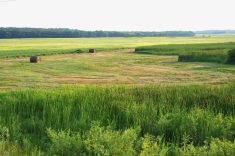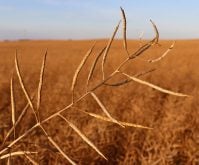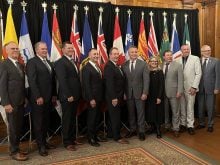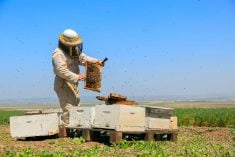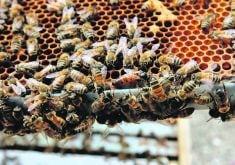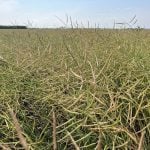Members of Parliament continued their study into business risk management (BRM) programs offered by the federal government during recent virtual meetings of the Standing Committee on Agriculture and Agri-Food.
The study was interrupted by COVID-19, which prompted meetings specifically about government’s response to the pandemic, but during meetings on June 12 and June 17, the study of BRMs were able to resume.
Grain Farmers of Ontario president Markus Haerle said the current suite of programs do not respond to the challenges being seen by producers.
“Those challenges are even more highlighted now because of COVID-19,” he said.
Read Also

Manitoba Ag Days 2026: Local businesses gear up for Brandon farm show
Most of agriculture is seemingly at Manitoba Ag Days each January: Manitoba agribusinesses and farm groups look forward to connecting with farmers at the 2026 show.
To date, just about every single person who has testified on the matter has called for significant reform to the programs, with the majority of them calling for specific changes to the AgriStability program.
The program is meant to provide support for farmers when they experience large declines in farm income, but producers argue the payout trigger remains too low and is not benefiting them.
Haerle said it was disappointing a meeting scheduled between federal and provincial ministers to discuss potential reforms to that, and other programs, was delayed from July to October.
“The problem that I see coming is that we’re going to have to get all provinces to agree on principles of getting reform done on programming,” he said, alluding to concerns raised by provinces over the expected millions of dollars more they would have to pay if support was increased.
Mark Brock, co-chair of the national program advisory committee for Ontario Ministry of Agriculture, Food and Rural Affairs said there is a “disconnect” between government action and policy development.
“We look at ways government’s been reacting to help support different sectors and different industries… and I just think there needs to be better communication and strategy for agriculture producers and engagement,” he said.
Benoit Legault, chief executive officer of Producteurs de grains du Québec said support for producers in Canada has dropped by 81 per cent since 2007, while increasing 98 per cent over the same period in the United States.
“COVID makes it clear we no longer have sufficient capacity or the right tools to respond to challenges,” he said.
Todd Lewis, president of Agricultural Producers Association of Saskatchewan (APAS) noted to members that farm income levels in his province dropped significantly in 2019.
“Payments should have risen to support the revenue shortfall, but that is not what happened,” he said.
Lewis echoed Haerle in his assessment of potential reform being on the horizon.
“We’re not optimistic at all,” he said.
During the June 17 meeting, Grain Growers of Canada director Andre Harpe said AgriStability is “not exactly appealing to the average farmer.”
“This program needs to be simplified, more timely, more predictable and more responsive,” he said.
Those comments were echoed by Peter Slade, assistant professor and Canadian Canola Growers chair in agricultural policy at the University of Saskatchewan.
“In theory, there’s much to like about AgriStability,” he said, before saying it is too complex, unpredictable and slow to respond, in part because it relies on detailed accounting of farmers’ finances to determine payouts.
Grain Growers of Canada executive director Erin Gowriluk poignantly summarized to the members why so many producers were calling for AgriStability to be reformed.
“It provides targeted support to the farmers in commodities who need it most,” she said, noting ad hoc supports offered in challenging times “inevitably picks winners and losers.”




